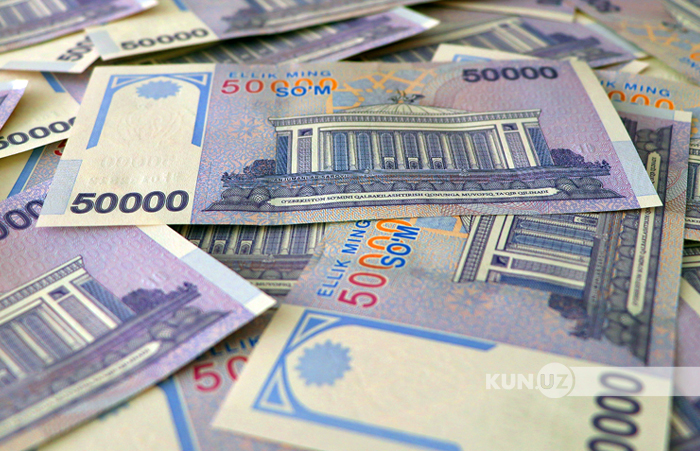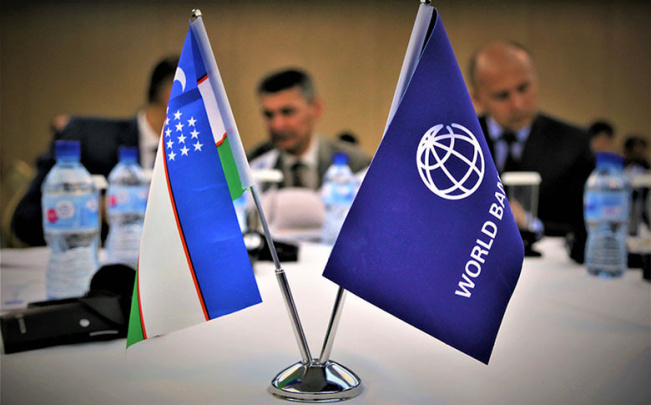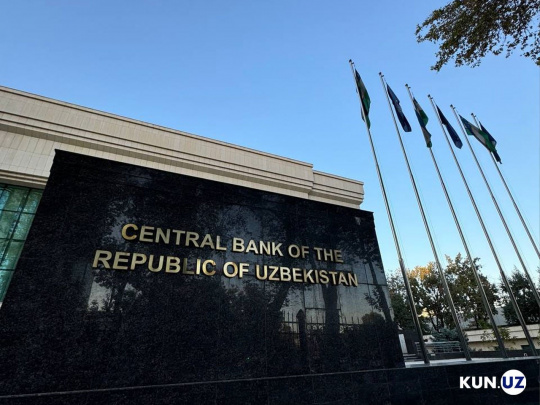Central Bank of Uzbekistan assessed impact of pandemic on economy
According to preliminary estimates of the Central Bank of Uzbekistan, in 2020, the country’s gross domestic product (GDP) growth rate is expected to slow down to 1.5-2.5 percent in the context of the coronavirus pandemic.

Photo: KUN.UZ
According to preliminary estimates of the Central Bank of Uzbekistan, in 2020, the country’s gross domestic product (GDP) growth rate is expected to slow down to 1.5-2.5 percent in the context of the coronavirus pandemic.
The sectors of tourism, hotel services, international transportation, entertainment, sports and exclusive services are forecast to experience the greatest slowdown.
According to the Central Bank, the increase in gold prices and in exports of horticultural products will have a positive impact on the revenues of the State budget and businesses, and thus, to some extent, the effects of the decline in tax revenues will be offset.
Experts of the regulator believe that the establishment of the Anti-Crisis Fund and its replenishment, including through the mobilization of resources from international financial institutions, and the accumulation of funds in special funds and their subsequent channeling to assist part of the population that lost profits during the quarantine period, will help mitigate the adverse effects of the pandemic.
Declining external demand and falling commodity prices in world markets will affect the downward trend in export transactions. For example, the decline in exports is estimated to be between 11 and 12 percent compared to 2019. Export declines are mainly expected for energy, non-ferrous metals and products, and tourism services. However, the increase in gold prices is expected to have some offsetting impact.
In addition, declining domestic investment and consumer demand and short-term disruption in global supply chains will reduce the demand for imports of goods and services to 10 percent. Imports of machinery and equipment, construction materials, ferrous metals and their products and services are also expected to decrease.
As a result, the current account deficit is estimated to increase from 7.2 percent of GDP in 2019 to 9.5-9.8 percent of GDP in 2020. Financing this deficit by ensuring sufficient foreign exchange earnings (external credit, foreign direct investment or the use of international reserves) is essential to maintaining macroeconomic stability in the country.
“The above factors will have a significant impact on fiscal revenues and consequently on the overall fiscal balance. By the end of 2020, the general fiscal deficit is expected to increase to 3.5-4.5 percent of GDP,” the regulator noted.
In addition, the basic inflation projection by the end of 2020 has decreased by 1 percentage point from the original estimates (12-13, 5 percent) to around 11-12.5 percent.
During January-March, Uzbekistan’s foreign trade declined by $924.1 million to $8.1 billion. Thus, the decline in foreign trade was mainly due to trade contractions with China (by 17.5 percent) in the first three months of 2020, which accounted for 16.8 percent of total foreign trade, with Kazakhstan (by 13.7 percent) and South Korea (by 22.1 percent).
In the first quarter of 2020, exports fell by 10.9 percent to $3.4 billion. This was due to a decline in sales of natural gas (by 29.6 percent), cotton fiber (by 46.9 percent), non-ferrous and ferrous metals (by 19 percent and 20.8 percent, respectively), and other products.
However, the rise in gold prices helped to sustain the overall foreign trade balance and reduce its deficit from $1.5 billion to $1.4 billion in the first quarter of 2020.
Recommended
List of streets and intersections being repaired in Tashkent published
SOCIETY | 19:12 / 16.05.2024
Uzbekistan's flag flies high on Oceania's tallest volcano
SOCIETY | 17:54 / 15.05.2024
New tariffs to be introduced in Tashkent public transport
SOCIETY | 14:55 / 05.05.2023
Onix and Tracker cars withdrawn from sale
BUSINESS | 10:20 / 05.05.2023
Latest news
-
Uzbekistan tops medal table at Asian Cadet Judo Cup in Kazakhstan
SPORT | 18:42 / 05.07.2025
-
Uncertainty grows as new homes remain without gas supply
SOCIETY | 17:46 / 05.07.2025
-
Uzbekistan plans to launch national ferry service in Caspian Sea
SOCIETY | 16:03 / 05.07.2025
-
Dozens of violations, zero accountability: Fergana police cancel fines for chief’s wife’s car
SOCIETY | 16:02 / 05.07.2025
Related News

16:15 / 04.07.2025
World Gold Council: Uzbekistan tops global gold sales in early 2025

17:16 / 02.07.2025
World Bank: Uzbekistan needs more exports, less state control to sustain growth

12:15 / 02.07.2025
IMF: Uzbekistan’s public-private partnerships could burden future budgets

17:35 / 01.07.2025



